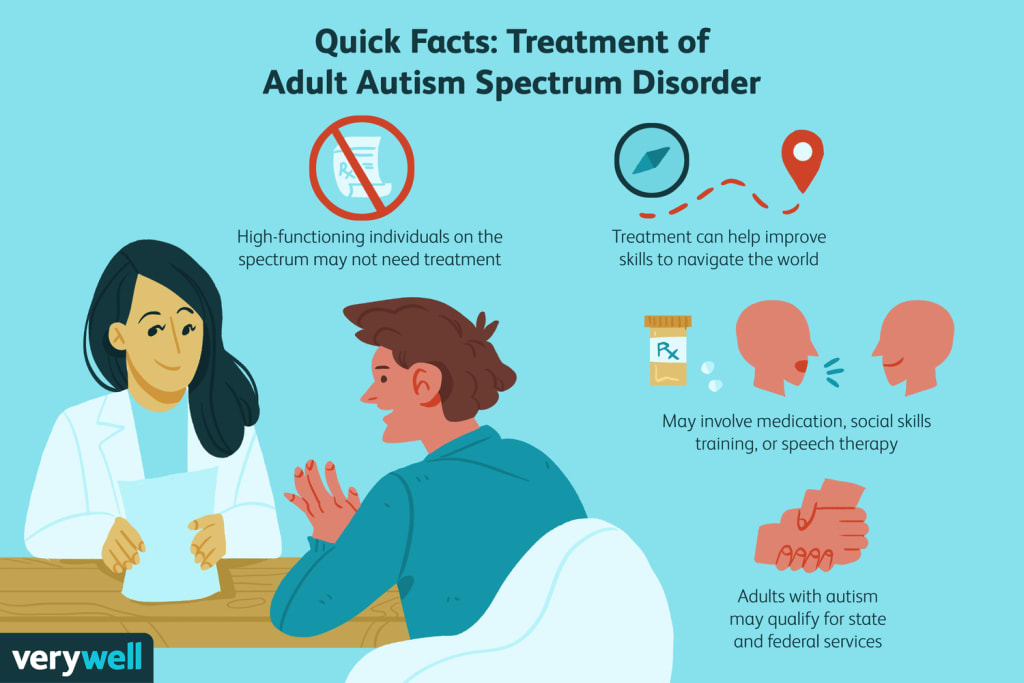Effective Treatment Options for Autism: A Comprehensive Overview.
Effective Treatment Options for Autism: A Comprehensive Overview.

Autism, also known as Autism Spectrum Disorder (ASD), is a neurodevelopmental disorder that affects communication, behavior, and social interaction. It is a lifelong condition that affects individuals differently, with varying degrees of severity. While there is no cure for Autism, early intervention and various treatment approaches can improve the quality of life for individuals with ASD. In this article, we will explore the different treatment for Autism and their effectiveness.
Behavioral and Developmental Interventions
Behavioral and developmental interventions are a cornerstone of Autism treatment. These interventions are designed to help individuals with ASD develop social, communication, and behavioral skills. Applied Behavior Analysis (ABA) is a widely used behavioral intervention that focuses on the principles of learning and behavior. ABA therapy is based on positive reinforcement and encourages desirable behaviors while reducing undesirable behaviors. It is a highly structured and intensive therapy that involves one-on-one sessions with a trained therapist.
Another behavioral intervention is Social Skills Training. It is a group therapy that helps individuals with Autism improve their social skills and communication. The therapy involves role-playing, group activities, and other exercises that help individuals learn how to initiate and maintain conversations, read social cues, and make friends.
Developmental interventions, such as Early Start Denver Model (ESDM), focus on early intervention for children with Autism. ESDM is a play-based therapy that targets communication, social interaction, and cognitive development. It is delivered in a naturalistic setting and involves parents as active participants in the therapy.
While behavioral and developmental interventions have shown to be effective in improving communication and social skills in individuals with Autism, they may not be suitable for everyone. Some individuals with ASD may find the highly structured nature of ABA therapy overwhelming, while others may benefit more from other interventions.
Medications
Medications are often used to treat co-occurring conditions that are commonly seen in individuals with Autism. These conditions include anxiety, depression, ADHD, and sleep disorders. Antidepressants, antipsychotics, and stimulants are some of the medications that may be prescribed to individuals with Autism.
However, it is important to note that medications are not a primary treatment for Autism itself. While medications can help manage some of the symptoms associated with Autism, they do not treat the core symptoms of the disorder.
Alternative Therapies
There are various alternative therapies that are sometimes used as complementary treatments for Autism. These therapies include acupuncture, massage therapy, and dietary interventions. While some individuals with Autism have reported benefits from these therapies, there is limited scientific evidence to support their effectiveness.
Dietary interventions, such as the Gluten-free Casein-free (GFCF) diet, involve the elimination of certain foods from an individual's diet. The GFCF diet involves the elimination of gluten and casein, which are proteins found in wheat, barley, and dairy products. While some parents of children with Autism have reported improvements in their child's behavior and communication following the GFCF diet, there is no conclusive scientific evidence to support its effectiveness.
Speech Therapy
Speech therapy is a common intervention used to improve communication in individuals with Autism. Speech therapists work with individuals to improve their ability to communicate effectively using verbal and nonverbal communication. They may also work on improving their ability to understand language and social cues.
Speech therapy can be beneficial for individuals with Autism who have difficulty with communication. However, it is important to note that not all individuals with Autism have communication difficulties. Some individuals with ASD may have average or above-average language skills but struggle with social communication and understanding social cues.
Occupational Therapy
Occupational therapy is a type of therapy that helps individuals with ASD improve their ability to perform everyday tasks and activities. Occupational therapists work with individuals to develop skills related to self-care, play, and socialization. They may also work on sensory integration, helping individuals with Autism process sensory information more effectively.
Occupational therapy can be beneficial for individuals with Autism who have sensory processing difficulties or difficulties with daily living activities. However, it is important to note that not all individuals with Autism have these difficulties and may not require occupational therapy.
Technology-based Interventions
Technology-based interventions are becoming increasingly popular as a treatment option for individuals with Autism. These interventions include the use of tablets, smartphones, and other electronic devices to teach skills and promote learning.





Comments
There are no comments for this story
Be the first to respond and start the conversation.